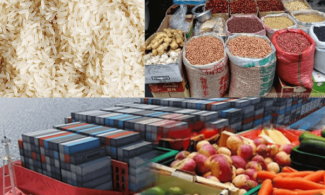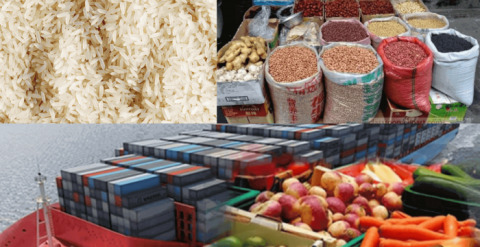
The stakeholders, who are mostly farmers, lamented the situation during the launch of agrochemical Safety Ambassadors in Yola, Adamawa State, an initiative of Feed the Future Nigeria Rural Resilience Activity, jointly implemented by Mercy Corps and Save the Children.
Some stakeholders in the Nigeria agricultural food sub-sector, have decried the rejection of locally produced food crops exported from the country to Western countries.
The stakeholders, who are mostly farmers, lamented the situation during the launch of agrochemical Safety Ambassadors in Yola, Adamawa State, an initiative of Feed the Future Nigeria Rural Resilience Activity, jointly implemented by Mercy Corps and Save the Children.

They lamented that their produce for export had been rejected in United States and the European Union countries because the produce contained high residues of agrochemical substances, Punch reports.
The Adamawa State Commissioner for Agriculture and Livestock Development, Daware Iya-Umar, also lamented that locally produced food crops for export get barred from European markets because agrochemical residues arising from the wrong use or application of agrochemicals.
He said, “Most of our goods were returned while exporting, based on the fact that they could not pass the test of quality control. That quality control might entail; the chemical content in our products due to lack of adequate knowledge on the application of agrochemicals.”
Other stakeholders including agricultural extension agents, agrochemical dealers who spoke through their representatives, all blamed the improper use and application of agrochemicals for making it difficult for Nigerian food produce to pass standards set for food safety.
Raymond Abogonye, acting deputy chief of party, Feed the Future Initiative, the United States government’s global hunger and food security initiative, said the United States government was concerned about the safety of the food consumed as well as those who produce the food, as the motive behind the launch of agro-safety ambassadors.
He noted that the US and its European allies had food safety standards that must be adhered to from crop production up to storage but which had yet to be observed by most farmers, particularly in their application and use of agrochemicals.
He said, agro-safety ambassadors which is the first level of awareness in addressing the challenge, in the pilot scheme, is expected to reach 500,000 farmers in the four states of Adamawa, Gombe, Borno and Yobe, where the activity is being implemented in the North East.
“Since we can’t reach everybody we want to use the facilitative market approach to include those who sell the chemicals themselves as those preaching the message of awareness to the farmers.
“With over 1,000 agrochemical dealers on our register recruited for the campaign and each targeting 50 farmers on the safe use and application of agrochemicals,” he added.